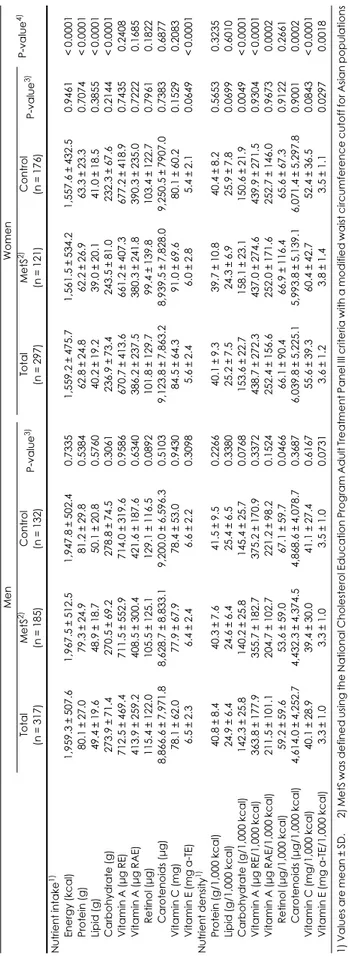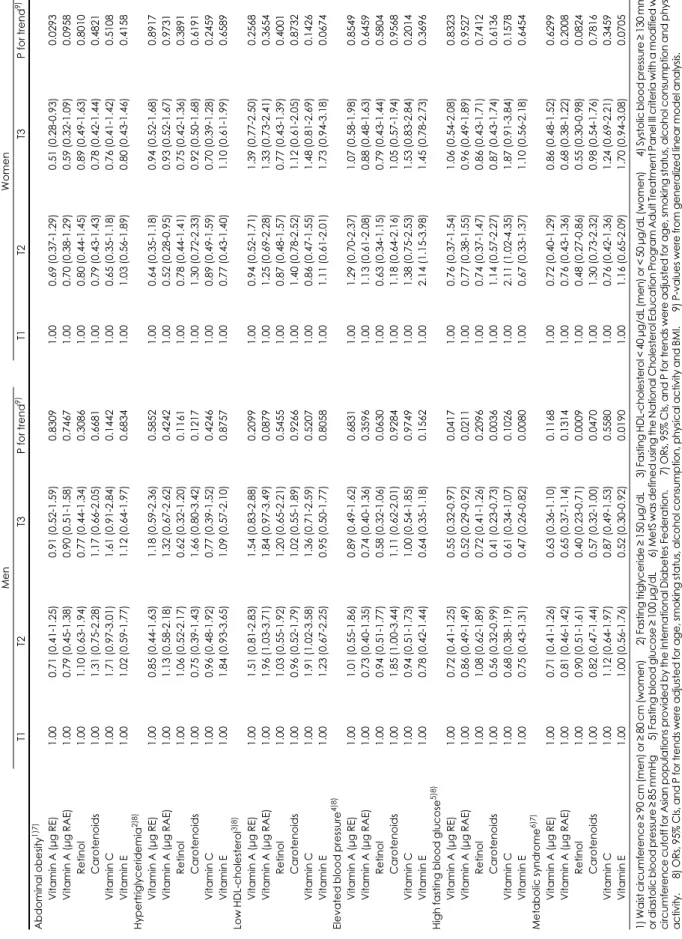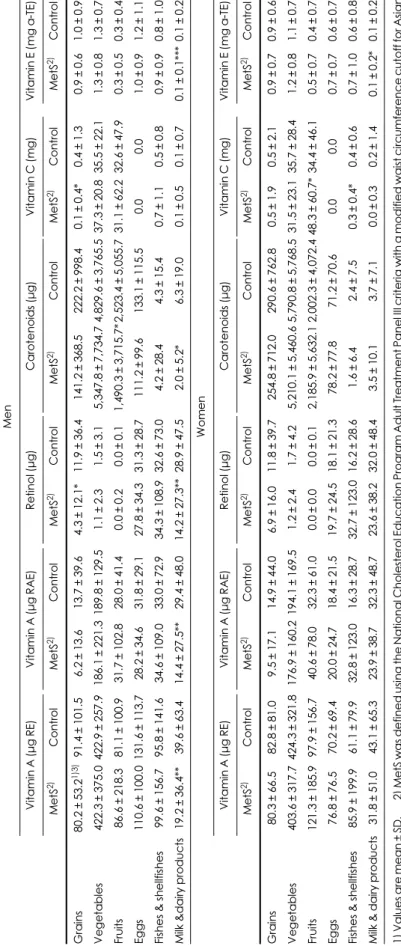Association between intake of antioxidant vitamins and metabolic syndrome risk among Korean adults
전체 글
수치



관련 문서
The Relationship between Physical Activities and Health-related Quality of Life in Korean Adults with Diabetes
Age-related changes in the prevalence of osteoporosis according to gender and skeletal site: The Korea National Health and Nutrition Examination Survey 2008-2010..
socioeconomic status and thyroid cancer prevalence; Based on the korean National Health and Nutrition Examination Survey2010-2011. Jung YI, Kim
Health behavior of multicultural and general family adolescents in Korea: the Korea Youth Risk.. Behavior
Prevalence of Undiagnosed Diabetes and Related Factors in Korean Postmenopausal Women:.. The 2011-2012 Korean National Health and
Objective: This study was conducted to identify the association between vitamin D and Sarcopenia among all adults in Korea using data from the National Health and
Objectives: The aim of this study was to study the relationship between smoking, alcohol drinking and vitamin D level among Korean adults using data from the
The purpose of the present study was to examine the effect of age-based social identity and aging anxiety on ageism among Korean young and middle aged adults. Results